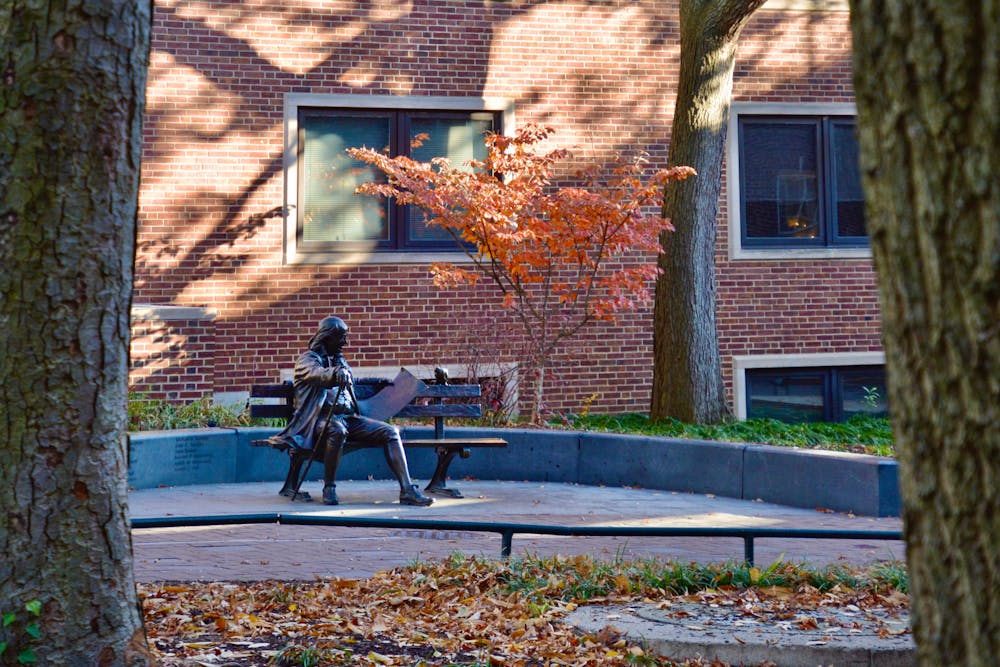Penn recently hosted at the Perry World House a celebration of the 300th anniversary of Benjamin Franklin’s arrival in Philadelphia. Guest speakers discussed the significance of his arrival and invited students to reflect on what we can take away from this history.
Ben Franklin’s accomplishments are widely appreciated. He was one of the founding fathers who signed the Declaration of Independence and negotiated treaties with France. He was a great scientist who conducted electricity experiments. He was a wise and humorous man who gave life lessons to posterity in his autobiography. By the time of his death, he was viewed almost as a demi-god.
But as time passed, different voices arose.
In this age, some people criticize Ben Franklin for his connections with slavery. He purchased at least seven slaves, and he included advertisements for the sale of slaves in his newspapers. In 2020, a statue of Franklin in Philadelphia was vandalized with red paint on his hands to symbolize his sin of slavery. On the personal side, some historians argue that Ben Franklin was not an ideal family man. They accuse him of neglecting his wife, Deborah, and estranging his son, William.
Acknowledging Ben Franklin's ties with slavery in his early years may be necessary, as a Penn professor argued. To critique his entire legacy, however, seems to be too much. Ben Franklin was among the first founding fathers to fight against slavery. He published Quaker pamphlets against slavery and criticized this practice many times in his personal correspondences. He also wrote essays supporting abolition after the ratification of the Constitution.
To the inadequate role he may have played within his family, direct arguments to defend him are harder to find. He could be acquitted by his accomplishments in the public sphere, though. He sacrificed time in his personal life to contribute to the birth of the United States. This was just a compromise that Ben Franklin negotiated with himself, like the many compromises he negotiated with France for the United States.
Although Ben Franklin owned slaves and neglected his familial duties, we can still celebrate his legacy and acknowledge him as a great historical figure. He was a great man not because he was perfect, but because he excelled in many aspects and left a valuable legacy throughout Penn, Philadelphia, and the larger world.
As Penn students, we are better poised to profit from Ben Franklin’s legacy than other college students across the country. Simple acts such as committing to memory his witty words carved on 37th Street Walk would be meaningful. No matter what we take away from Ben Franklin, one thing is certain: we recognize his accomplishments and are thankful to his legacy. Both sentiments are unaffected evaluations of his personable conduct by present-day standards.
SEE MORE FROM FRANKLIN LI:
Compared to others in American history, such as Columbus, Washington, or Lincoln, Ben Franklin is still relatively less controversial. Controversies around Ben Franklin point to the problem of how we should approach historical figures in general. In a time when political correctness permeates the world, we criticize and condemn people more easily than we appreciate and acknowledge their achievements. But, when commenting on people in the past, we need to consider the social standards of their day and show respect for their legacy.

FRANKLIN LI is a College first year from Beijing, China. His email is liyuzhou@sas.upenn.edu.









